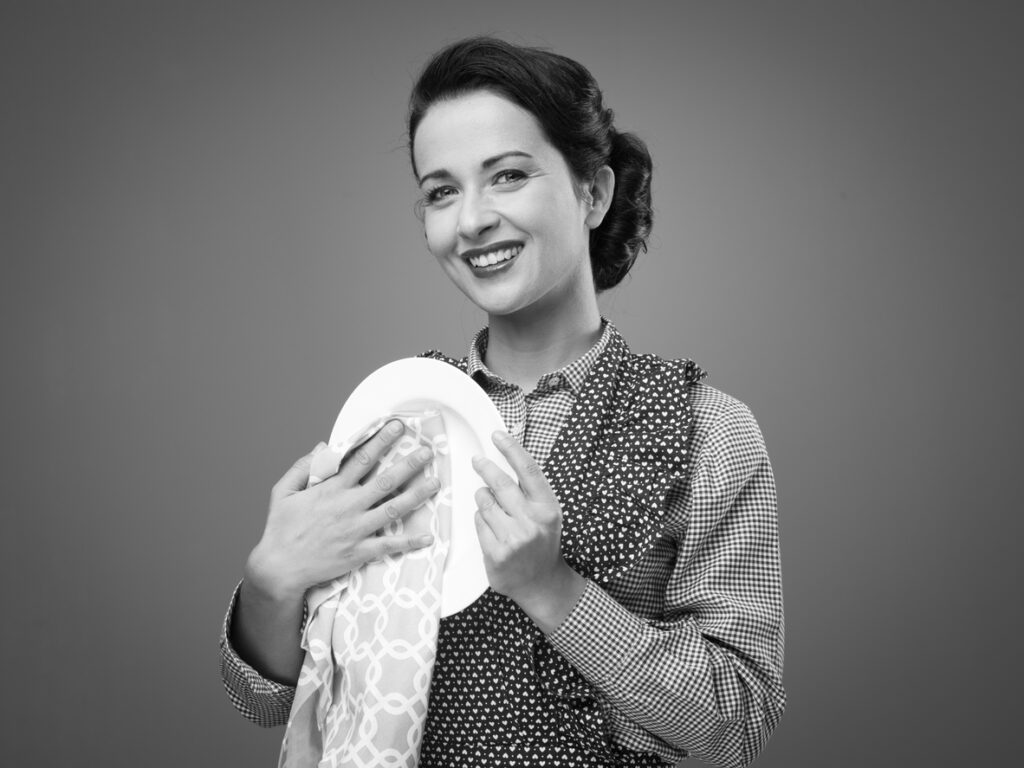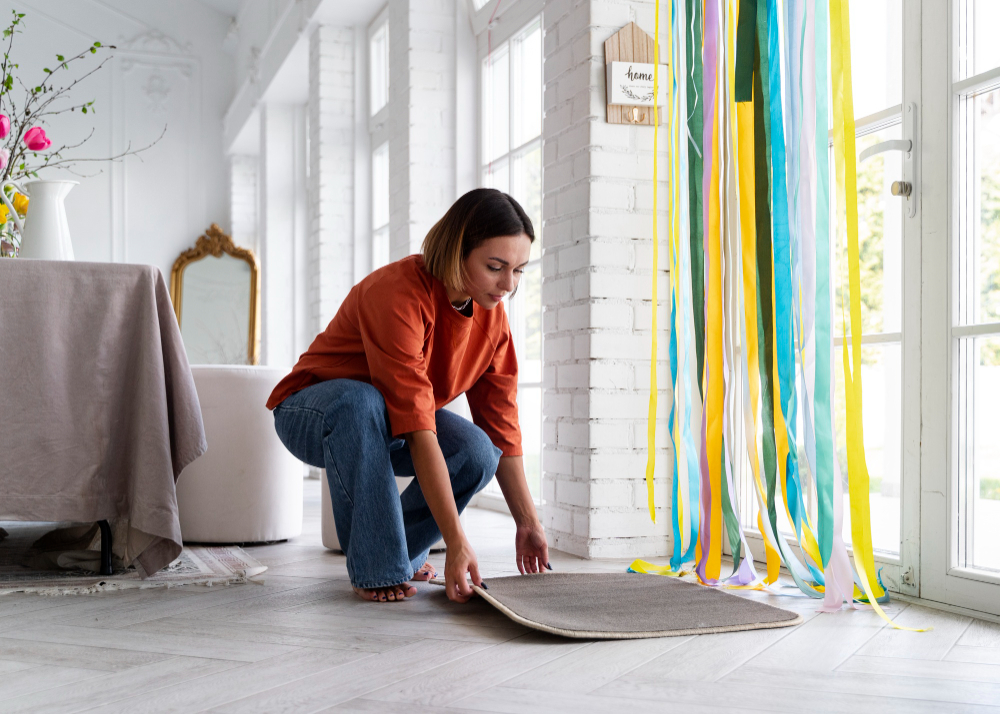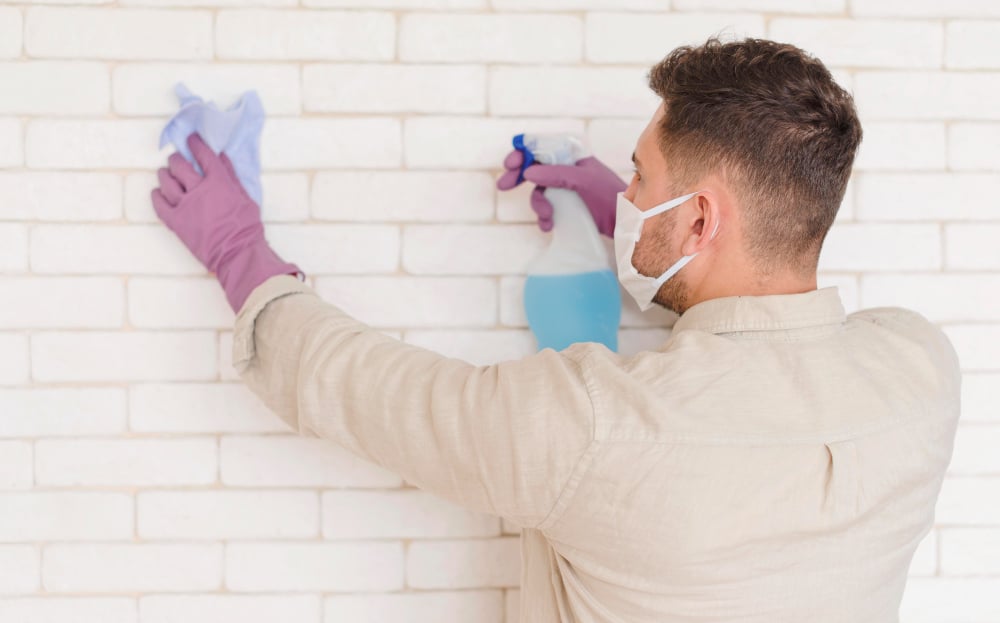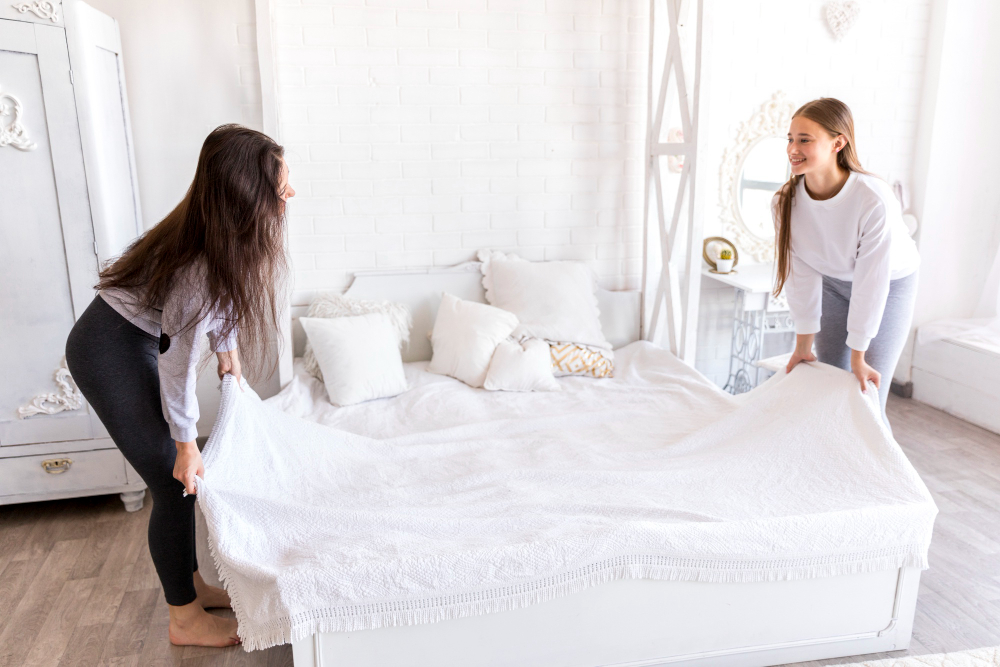You won’t believe how much harder cleaning was before dishwashers, vacuums, and running water.

Imagine scrubbing floors on your hands and knees or hauling buckets of water just to do the laundry. That was everyday life for our grandparents, long before fancy vacuums, automatic washers, and spray cleaners made housekeeping a breeze.
Keeping a home spotless took serious effort, creativity, and a whole lot of elbow grease. Yet, somehow, they managed to keep everything looking fresh without any modern conveniences. So how did they do it? Their secret methods might just surprise you.
1. They scrubbed floors by hand with nothing but a bucket and a brush.

Forget fancy mops and Swiffers—our grandparents got down on their hands and knees with a stiff brush, a bar of soap, and a whole lot of determination. Cleaning floors was a full-body workout, and skipping a day wasn’t an option. If you’ve ever complained about pushing a mop around, imagine scrubbing every inch of your home like you were polishing a ship’s deck. No shortcuts, just aching knees and the satisfaction of a job well done.
2. They boiled water just to wash the dishes.

No dishwasher? No problem—just an enormous pot of scalding water and some serious scrubbing power. Before hot water flowed from the tap, dishes had to be washed the hard way. Water was heated on the stove, poured into a sink or basin, and then reused for multiple rounds of washing. Grease? You fought it with lye soap and elbow grease. And if you were the unlucky one washing, your hands probably looked like prunes by the end.
3. They beat the dust out of rugs instead of vacuuming.

When carpets got dirty, there was no vacuum to suck up the mess. Instead, rugs were hauled outside, hung over a clothesline, and beaten within an inch of their lives with a wooden paddle. Dust flew everywhere, covering clothes, faces, and anyone unfortunate enough to be downwind. It was exhausting, messy, and loud—but it worked. And let’s be honest, it probably doubled as stress relief. Nothing like whacking a rug to take out some frustration.
4. They ironed everything—including sheets and underwear.

Wrinkle-free dryers? Nope. Our grandparents broke out the heavy iron and got to work. Clothes, sheets, pillowcases, even underwear—if it was fabric, it got pressed. And let’s not forget those terrifying, fire-breathing irons that had to be heated on the stove. There was no such thing as tossing a wrinkled shirt back in the dryer for a “refresh.” If you wanted crisp and neat, you worked for it, sweating over an ironing board for what felt like hours.
5. They hand-washed laundry with a washboard and wringer.

Laundry day was no joke. Clothes were soaked, scrubbed against a metal washboard, and then wrung out by hand or cranked through a wringer. This wasn’t a quick spin cycle—this was raw, back-breaking labor. And let’s not even talk about winter, when laundry had to be hung outside to freeze before it dried. No fancy detergents, no gentle cycles—just hard work and hope that nothing turned an awful shade of gray from the well water.
6. They used homemade cleaning products that smelled like vinegar and sweat.

Store-bought cleaning sprays? Our grandparents didn’t have that luxury. Instead, they mixed up their own cleaning concoctions using vinegar, baking soda, lye soap, and whatever else could cut through grime. Some of these homemade brews worked wonders, but others left behind a stench that could clear a room. If you wanted clean windows, you grabbed a newspaper and a bottle of vinegar. If you wanted disinfectant, you hoped that boiling water and soap did the trick.
7. They polished furniture by hand—no spray, just elbow grease.

Wood furniture didn’t get a quick mist of polish and a swipe with a rag. Nope, it was a whole process. Lemon oil or homemade wax had to be rubbed in by hand, buffed to a shine, and reapplied constantly to keep everything looking fresh. This wasn’t a once-a-month kind of job, either. If guests were coming over, out came the polishing cloths. And if you were a kid? You were recruited as free labor.
8. They cleaned windows with newspaper and a homemade mix that smelled awful.

Forget fancy glass cleaners. Grandparents grabbed a bottle of vinegar and a stack of old newspapers to get their windows sparkling. The smell was enough to make your eyes water, and the ink from the newspaper often left your hands blackened. But somehow, this DIY method worked like a charm—no streaks, no smudges, just clear, gleaming glass. And if you complained? You were handed another sheet of newspaper and told to keep going.
9. They freshened the air with open windows, not plug-in scents.

No artificial air fresheners, no fancy sprays—just the great outdoors. Stale air was dealt with by throwing open every window, no matter the season. And if your house still smelled funky? That’s where homemade potpourri, fresh flowers, or a simmering pot of citrus peels came in. Sure, it didn’t last as long as modern air fresheners, but at least it wasn’t filling the house with synthetic chemicals. Just good old-fashioned fresh air and a breeze.
10. They scrubbed walls and ceilings because dust didn’t just settle on floors.

Nowadays, people barely dust their baseboards, but our grandparents knew that grime built up everywhere—including the walls and ceilings. A couple of times a year, out came the buckets of soapy water and scrub brushes, and every inch of the house got a serious wipe-down. If you had wallpaper, you had to be extra careful not to scrub too hard or it would peel right off. It was tedious, but nothing was left untouched.
11. They aired out mattresses and beat them to get rid of dust mites.

No high-tech mattress covers or memory foam here—just heavy, stuffed mattresses that had to be dragged outside and aired out in the sun. If they were really dirty, they got a good beating with a broom or paddle to shake out the dust. And since vacuuming a mattress wasn’t an option, this was the best way to freshen it up. Sleeping on a musty bed wasn’t appealing, so this chore wasn’t optional—it was survival.
